Information injection-pump assembly
BOSCH
9 400 611 706
9400611706
ZEXEL
101606-0093
1016060093
ISUZU
8976000014
8976000014
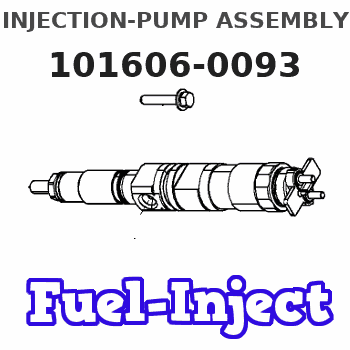
Rating:
Service parts 101606-0093 INJECTION-PUMP ASSEMBLY:
1.
_
7.
COUPLING PLATE
8.
_
9.
_
11.
Nozzle and Holder
8-94391-291-4
12.
Open Pre:MPa(Kqf/cm2)
16.2{165}/19.6{200}
14.
NOZZLE
Include in #1:
101606-0093
as INJECTION-PUMP ASSEMBLY
Include in #2:
104742-1461
as _
Cross reference number
BOSCH
9 400 611 706
9400611706
ZEXEL
101606-0093
1016060093
ISUZU
8976000014
8976000014
Zexel num
Bosch num
Firm num
Name
9 400 611 706
8976000014 ISUZU
INJECTION-PUMP ASSEMBLY
6HL1-S * K 14BF PE6AD PE
6HL1-S * K 14BF PE6AD PE
Calibration Data:
Adjustment conditions
Test oil
1404 Test oil ISO4113 or {SAEJ967d}
1404 Test oil ISO4113 or {SAEJ967d}
Test oil temperature
degC
40
40
45
Nozzle and nozzle holder
105780-8260
Bosch type code
9 430 610 133
Nozzle
105780-0120
Bosch type code
1 688 901 990
Nozzle holder
105780-2190
Opening pressure
MPa
18
Opening pressure
kgf/cm2
184
Injection pipe
Outer diameter - inner diameter - length (mm) mm 6-2-600
Outer diameter - inner diameter - length (mm) mm 6-2-600
Overflow valve
131424-8620
Overflow valve opening pressure
kPa
206
172
240
Overflow valve opening pressure
kgf/cm2
2.1
1.75
2.45
Tester oil delivery pressure
kPa
255
255
255
Tester oil delivery pressure
kgf/cm2
2.6
2.6
2.6
Direction of rotation (viewed from drive side)
Left L
Left L
Injection timing adjustment
Direction of rotation (viewed from drive side)
Left L
Left L
Injection order
1-5-3-6-
2-4
Pre-stroke
mm
3.8
3.75
3.85
Rack position
Point A R=A
Point A R=A
Beginning of injection position
Governor side NO.1
Governor side NO.1
Difference between angles 1
Cal 1-5 deg. 60 59.5 60.5
Cal 1-5 deg. 60 59.5 60.5
Difference between angles 2
Cal 1-3 deg. 120 119.5 120.5
Cal 1-3 deg. 120 119.5 120.5
Difference between angles 3
Cal 1-6 deg. 180 179.5 180.5
Cal 1-6 deg. 180 179.5 180.5
Difference between angles 4
Cyl.1-2 deg. 240 239.5 240.5
Cyl.1-2 deg. 240 239.5 240.5
Difference between angles 5
Cal 1-4 deg. 300 299.5 300.5
Cal 1-4 deg. 300 299.5 300.5
Injection quantity adjustment
Adjusting point
-
Rack position
14.5
Pump speed
r/min
850
850
850
Average injection quantity
mm3/st.
133.5
131.9
135.1
Max. variation between cylinders
%
0
-2.5
2.5
Basic
*
Fixing the rack
*
Standard for adjustment of the maximum variation between cylinders
*
Injection quantity adjustment_02
Adjusting point
Z
Rack position
9.5+-0.5
Pump speed
r/min
300
300
300
Average injection quantity
mm3/st.
15.5
14.2
16.8
Max. variation between cylinders
%
0
-14
14
Fixing the rack
*
Standard for adjustment of the maximum variation between cylinders
*
Injection quantity adjustment_03
Adjusting point
A
Rack position
R1(14.5)
Pump speed
r/min
850
850
850
Average injection quantity
mm3/st.
133.5
132.5
134.5
Basic
*
Fixing the lever
*
Injection quantity adjustment_04
Adjusting point
B
Rack position
(R1+1.1)
+0.05-0.
15
Pump speed
r/min
1450
1450
1450
Average injection quantity
mm3/st.
133.5
130.3
136.7
Fixing the lever
*
Test data Ex:
Governor adjustment
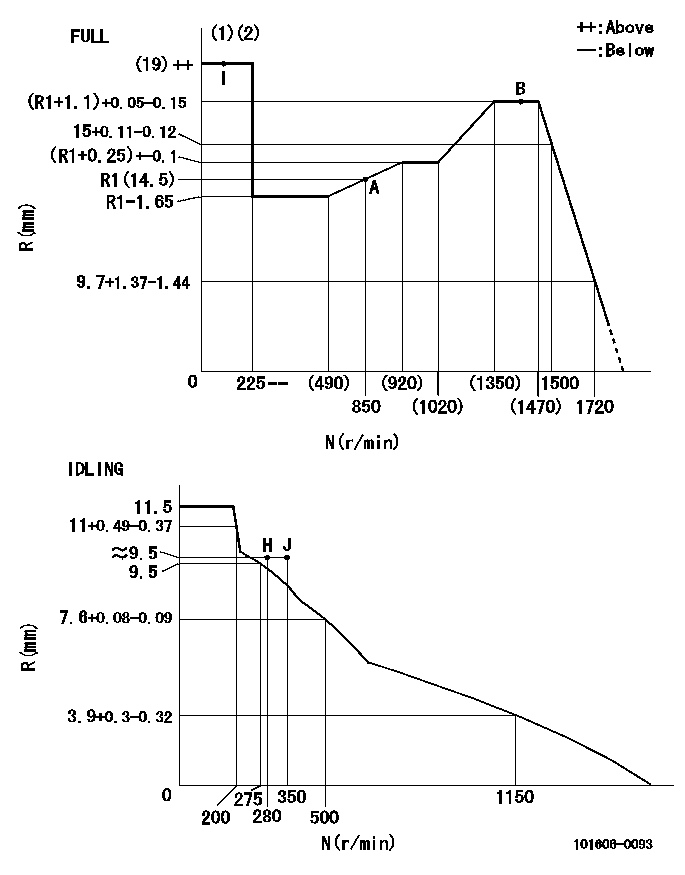
N:Pump speed
R:Rack position (mm)
(1)Torque cam stamping: T1
(2)Tolerance for racks not indicated: +-0.05mm.
----------
T1=P01
----------
----------
T1=P01
----------
Timer adjustment
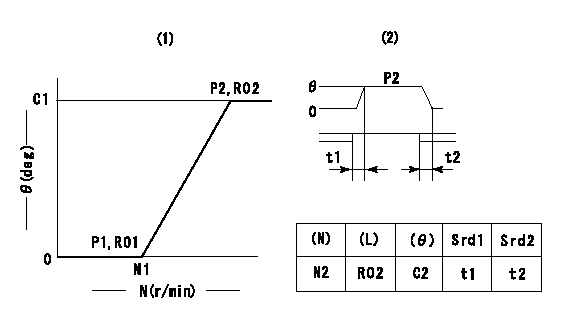
(1)Adjusting range
(2)Step response time
(N): Speed of the pump
(L): Load
(theta) Advance angle
(Srd1) Step response time 1
(Srd2) Step response time 2
1. Adjusting conditions for the variable timer
(1)Adjust the clearance between the pickup and the protrusion to L.
----------
L=1.5+-0.2mm N2=800r/min C2=(8)deg t1=2--sec. t2=2--sec.
----------
N1=1300++r/min P1=0kPa(0kgf/cm2) P2=392kPa(4kgf/cm2) C1=8+-0.3deg R01=0/4load R02=4/4load
----------
L=1.5+-0.2mm N2=800r/min C2=(8)deg t1=2--sec. t2=2--sec.
----------
N1=1300++r/min P1=0kPa(0kgf/cm2) P2=392kPa(4kgf/cm2) C1=8+-0.3deg R01=0/4load R02=4/4load
Speed control lever angle
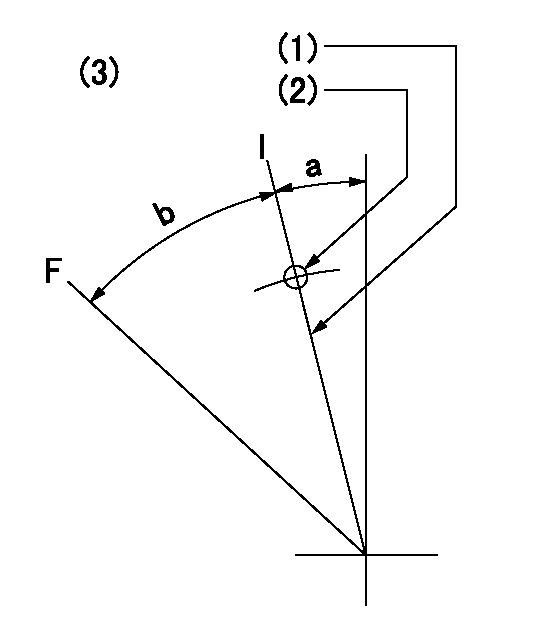
F:Full speed
I:Idle
(1)Stopper bolt set position 'H'
(2)Use the pin at R = aa
(3)Viewed from feed pump side.
----------
aa=35mm
----------
a=10deg+-5deg b=41deg+-3deg
----------
aa=35mm
----------
a=10deg+-5deg b=41deg+-3deg
Stop lever angle
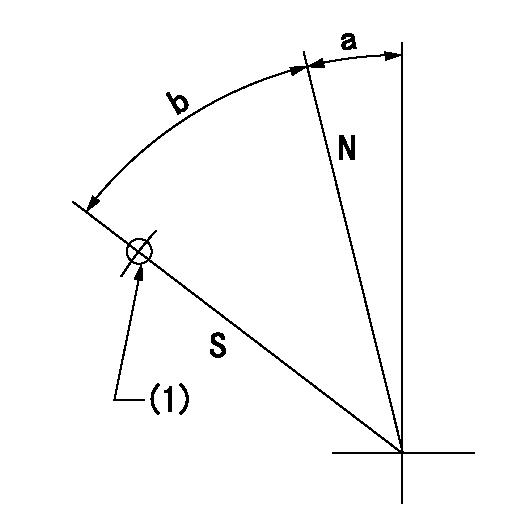
N:Pump normal
S:Stop the pump.
(1)Use the pin at R = aa
----------
aa=45mm
----------
a=12.5deg+-5deg b=40deg+-5deg
----------
aa=45mm
----------
a=12.5deg+-5deg b=40deg+-5deg
0000001501 RACK SENSOR
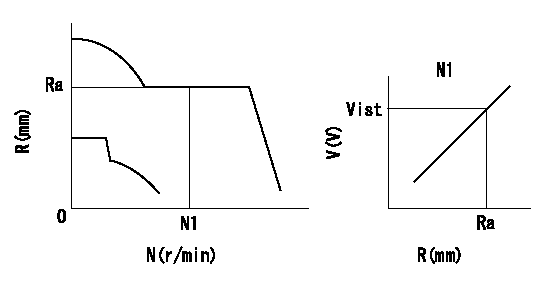
Rack sensor adjustment
1. Flange type rack sensor (rack sensor adjustment -5*20)
(1)These types of rack sensors do not need adjustment. Confirm the performance with the following procedures.
(2)Mount the rack sensor main body to the pump main body.
(3)Fix the pump lever at full.
(4)At supply voltage V1, pump speed N1 and rack position Ra, confirm that the amp's output voltage is Vist.
(5)Move the pump lever two or three times.
(6)Set again to full.
(7)Confirm that the amplifier output voltage is Vist.
(8)Fix the caution plate to the upper part of the rack sensor.
(For those without the caution plate instructions, make sure the nameplate of the rack sensor carries the "Don't hold here" caution.)
(9)Apply red paint to the rack sensor mounting bolts (2 places).
----------
V1=5+-0.01V N1=850r/min Ra=R1(14.5)mm Vist=3.74+-0.28V
----------
----------
V1=5+-0.01V N1=850r/min Ra=R1(14.5)mm Vist=3.74+-0.28V
----------
Timing setting
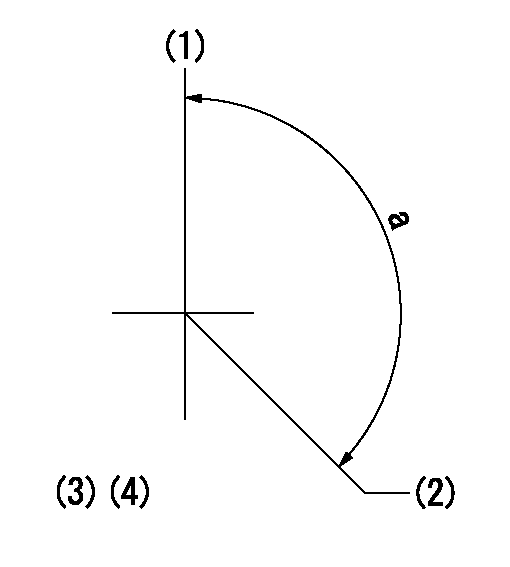
(1)Pump vertical direction
(2)Positions of coupling's threaded installation holes at No 1 cylinder's beginning of injection
(3)B.T.D.C.: aa
(4)-
----------
aa=6deg
----------
a=(160deg)
----------
aa=6deg
----------
a=(160deg)
Information:
Emergency Stop Push Button
Emergency Stop Push Button (ESPB)The Emergency Stop Push Button (ESPB) requires resetting both the push button and the air inlet shutoff (if equipped) before the engine will start.
Always determine the cause of the engine shutdown. Make necessary repairs before attempting restarting the engine.Emergency shutoff controls are for EMERGENCY use ONLY. DO NOT use Emergency shutoff devices or controls for normal stopping procedure. Refer to the Engine Stopping section of this manual for normal stopping procedures.
Oil Pressure Switch
Typical example of oil pressure switches, mounted in the rear of the junction box.An oil pressure switch has wires connected to the electrical shutoff system for alarm or shutdown functions. The oil pressure switch senses oil pressure at the bearing oil gallery. Switches may close at 48 to 62 kPa (7 to 9 psi) below actual trip point. No resetting procedure is required.Water Temperature Contactor Switch
This contactor switch is a coolant temperature sensor.The water temperature contactor switch is located near the coolant water regulator housing. Excessive water temperature closes the switch. Maximum coolant temperature to trip shutoff is 104°C (219°F). The switch opens as the coolant cools. No resetting procedure is required. The unit has wires connected to the electrical shutoff system for alarm or shutdown functions.
The sensing element must be submerged in the coolant to operate. Be sure to have an adequate water supply in the jacket water system, or engine damage could result.
Coolant Loss Sensor (If Equipped)
The optional coolant loss sensor is usually mounted near the top of the engine expansion tank or radiator. The sensor detects when the coolant level is below a preset minimum level.
This coolant loss switch, shown next to a sight glass, is mounted on the side of a radiator.If the coolant level drops below the minimum level, the sensor may sound an alarm, or cause a shutdown to avoid engine overheating or possible engine damage. Coolant must be added to the radiator or expansion tank to clear or reset the condition. In the event of intermittent engine shutdowns, the coolant water level should be checked. Add premixed coolant water to the fill tank, to within 13 mm (1/2 inch) below the filler tube.Check the expansion tank or radiator daily for proper coolant level.Overspeed Shutoffs
The electrical shutoff for the overspeed switch uses a magnetic pickup mounted in the flywheel housing. The electrical shutoff works through the fuel shutoff solenoid and air inlet shutoff (if equipped).
Magnetic pickup (1), mounted in the flywheel housing (2).Should the engine overspeed, the magnetic pickup will sense the excess speed. If overspeed is sensed, the electrical shutoff closes the air and fuel shutoff solenoids (the fuel rack will move to fuel OFF position).The overspeed shutdown has to be reset. Reset the air inlet shutoff (if equipped) and the overspeed switch. Both switches are located in the junction box or control panel.
Overspeed Shutoff Switch (Electro-Mechanical)This switch is mounted either on the tachometer drive or the governor. Excessive engine speed closes the switch by centrifugal force.If equipped with a Caterpillar Generator
Emergency Stop Push Button (ESPB)The Emergency Stop Push Button (ESPB) requires resetting both the push button and the air inlet shutoff (if equipped) before the engine will start.
Always determine the cause of the engine shutdown. Make necessary repairs before attempting restarting the engine.Emergency shutoff controls are for EMERGENCY use ONLY. DO NOT use Emergency shutoff devices or controls for normal stopping procedure. Refer to the Engine Stopping section of this manual for normal stopping procedures.
Oil Pressure Switch
Typical example of oil pressure switches, mounted in the rear of the junction box.An oil pressure switch has wires connected to the electrical shutoff system for alarm or shutdown functions. The oil pressure switch senses oil pressure at the bearing oil gallery. Switches may close at 48 to 62 kPa (7 to 9 psi) below actual trip point. No resetting procedure is required.Water Temperature Contactor Switch
This contactor switch is a coolant temperature sensor.The water temperature contactor switch is located near the coolant water regulator housing. Excessive water temperature closes the switch. Maximum coolant temperature to trip shutoff is 104°C (219°F). The switch opens as the coolant cools. No resetting procedure is required. The unit has wires connected to the electrical shutoff system for alarm or shutdown functions.
The sensing element must be submerged in the coolant to operate. Be sure to have an adequate water supply in the jacket water system, or engine damage could result.
Coolant Loss Sensor (If Equipped)
The optional coolant loss sensor is usually mounted near the top of the engine expansion tank or radiator. The sensor detects when the coolant level is below a preset minimum level.
This coolant loss switch, shown next to a sight glass, is mounted on the side of a radiator.If the coolant level drops below the minimum level, the sensor may sound an alarm, or cause a shutdown to avoid engine overheating or possible engine damage. Coolant must be added to the radiator or expansion tank to clear or reset the condition. In the event of intermittent engine shutdowns, the coolant water level should be checked. Add premixed coolant water to the fill tank, to within 13 mm (1/2 inch) below the filler tube.Check the expansion tank or radiator daily for proper coolant level.Overspeed Shutoffs
The electrical shutoff for the overspeed switch uses a magnetic pickup mounted in the flywheel housing. The electrical shutoff works through the fuel shutoff solenoid and air inlet shutoff (if equipped).
Magnetic pickup (1), mounted in the flywheel housing (2).Should the engine overspeed, the magnetic pickup will sense the excess speed. If overspeed is sensed, the electrical shutoff closes the air and fuel shutoff solenoids (the fuel rack will move to fuel OFF position).The overspeed shutdown has to be reset. Reset the air inlet shutoff (if equipped) and the overspeed switch. Both switches are located in the junction box or control panel.
Overspeed Shutoff Switch (Electro-Mechanical)This switch is mounted either on the tachometer drive or the governor. Excessive engine speed closes the switch by centrifugal force.If equipped with a Caterpillar Generator